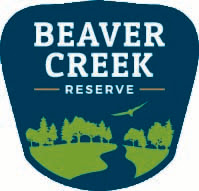Thanksgiving is almost here and every year I try to find something new to be thankful for. Now more than ever, the environment and natural landscapes face a monumental threat in the form of human behavior, so I’ve decided to be thankful for the select group of individuals who recognized this threat and took the first steps toward eradicating it.
 |
"We abuse land because we see it as a commodity belonging
to us. When we see land as a community to which we
belong, we may begin to use it with love and respect."
-Aldo Leopold |
First, I would like to thank Aldo Leopold. Leopold was born in 1887 in Iowa, where he caught the conservation bug at an early age. About a decade after graduating Yale Forest School, Leopold made the move up to Wisconsin where he began most of his conservation and restoration work. Perhaps his most infamous ecological experiment was the restoration of an old farm land just outside of Baraboo, WI. During the weekends that he was at “the Shack”, Leopold spent his time planting pine trees and restoring prairies. This experiment highlights his ideas of “land ethics”, which calls for a caring relationship between people and nature - something we could use a little more of today.
 |
"When one tugs at a single thing in nature, he finds it
attached to the rest of the world." -John Muir |
Second, I would like to thank the “Father of our National Park System”, John Muir. Muir was born in 1883 in Scotland, but then later moved to the United States. Muir wore many hats, some of which were as a naturalist, a farmer, an inventor, an explorer, a writer, and a conservationist. A fateful trip out to California’s Sierra Nevada region changed Muir’s life forever. The beauty of the natural landscape at Yosemite National Park had Muir in awe and so he began working to ensure that this beauty would remain untouched. In 1892, Muir and some of his supporters formed the Sierra Club, where they fought against business men and others who wanted to diminish the borders of Yosemite.
 |
"Conservation means development as much as it means protection.
I recognize the right and the duty of this generation to develop and
use the natural resources of our land; but I do not recognize the
right to waste them, or to rob, by wasteful use, the generations that
come after us." -Teddy Roosevelt |
Lastly, I would like to thank Teddy Roosevelt. Roosevelt was the 26th president of the United States and was arguably one of the most environmentally conscious presidents this country has ever seen. Shortly after becoming president in 1901, Roosevelt founded the United States Forest Service (USFS) with the Department of Agriculture where he established five national parks, 150 national forests, four national game preserves, 51 federal bird reserves, and 18 national monuments through enabling the American Antiquities Act. It’s estimated that Roosevelt protected about 230 million acres of public land during his presidency.



